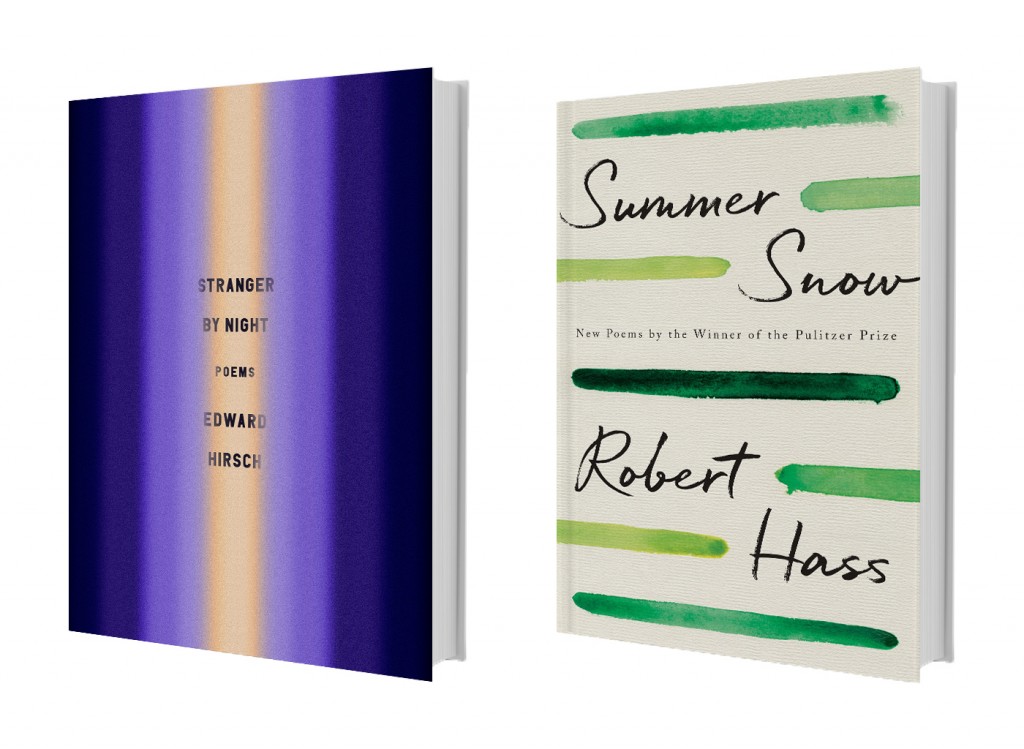Edward Hirsch’s page-turner, Stranger By Night (Knopf), an autobiographical string of short, intimate scenes and memories, suggests a summing up of sorts. In this tenth collection he begins in the present, calling himself “…a delinquent mourner…because my friends keep dying.” Individual poems commemorate Mark Strand and William Meredith, and then lead the reader on a tour backwards through a writer’s life. From his decades-long membership in the exclusive guild of American poets, with “our weakness for standing/ at the podium/ seeking applause,” Hirsch introduces us to the aspiring young man claiming experiences, reading voraciously, and seeking out his roots in Leningrad in 1973, “… a man who tilted his head/ the way I do/ and stood there gazing/ into an unexpected mirror/ for an eternity/ before he recognized/ the greenish-brown eyes/ and the long knife of his own nose.”
Early in his career, Hirsch, the winner of MacArthur and Guggenheim fellowships, and the Prix de Rome among many poetry prizes, supported his calling with teaching and summer jobs in Rust Belt towns, and in the rail yards of Chicago, the city where he grew up. In “To My Seventeen-Year-Old Self,” the boy must “… stand and wait/ for the unexpected night/ when poetry climbs through/ the unlocked window/ in the basement… and sits down at your desk.” For any reader, let alone someone already devoted to Hirsch’s work, such a look into his life is welcome, and those who have read his last book Gabriel, a devastating long-form poem about the life and tragic death of his son at age 22, will recognize his irrepressible pace and unadorned language. There is no greater spokesperson for poetry and its extraordinary power to speak across the ages.
While Stranger By Night can be read in a single sitting, poems in Robert Hass’s rich new collection Summer Snow (Ecco), his first book of poems in a decade, must be consumed just a few at a time. Hass, ever the raconteur, pulls into his writing places and people like a tornado inhaling whole trees. These, like Hirsch’s, also have a journal-like feel to them. Poets write about what they know best after all, and in Hass’s case, this is “poor, swollen America.” The former US Poet Laureate and winner of the Pulitzer Prize for Poetry is waist-deep in front page news and lead stories from NPR.
“Dancing” chronicles humanity’s plunge from the discovery of fire, through fireworks, to firearms, La Salle, Hiroshima, Kalashnikov, and imperialism. “…Children’s armies in Africa toting AK-47s… / They were dancing in Orlando, in a club. Spring night./ …and into the history/ Of the shaming culture that produced the idea of Gay Pride…” His frame of reference allows us to hover over human experience, while simple, visceral references bring us back to Earth.
Hass has the knack of that rare dinner table story-teller who starts with a premise, goes far afield in a tangential reverie, then finds his way back to the beginning just as you’re sure he’s lost. Because he offers mundane details, the price of a cheap motel for instance, or what he ate for dinner, his poems feel more like a friend’s recounting than an ideological harangue. In this age of the diatribe, it’s refreshing to read such thoughtful words from these two poets, and to trust what they’re saying.


